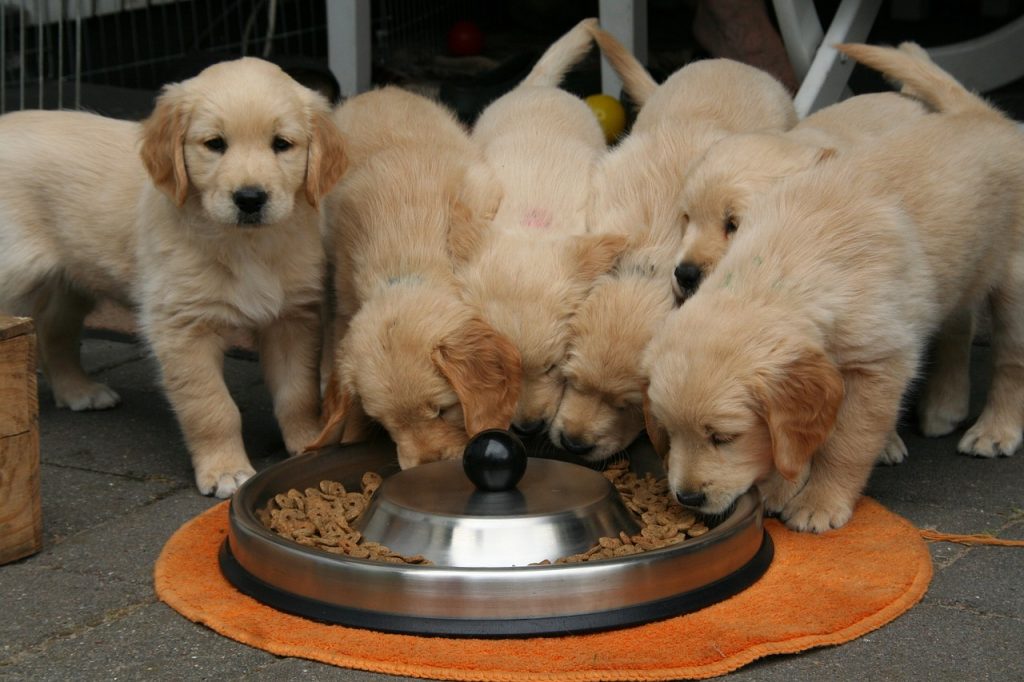The Importance of Pet Nutrition
The role of nutrition in pet health
Proper nutrition is the foundation of a healthy and happy life for your pet. It impacts their energy levels, coat condition, immune system, and longevity.
Common pet nutrition misconceptions
Debunking prevalent myths about pet nutrition, such as the belief that dogs and cats should have the same diet as humans.
Essential Nutrients for Pets
When it comes to pet nutrition, several essential nutrients are required to keep your pet in optimal health.
Protein
Exploring the significance of protein in your pet’s diet and sources of high-quality protein.
Carbohydrates
Understanding the role of carbohydrates and the right sources for pets.
Fats
The importance of fats in your pet’s diet and different types of dietary fats.
Vitamins
A closer look at the vitamins essential for your pet’s overall health.
Minerals
Exploring the role of minerals like calcium, phosphorus, and magnesium in pet nutrition.
Choosing the Right Pet Food
Commercial vs. homemade diets
Comparing the advantages and disadvantages of commercial pet foods with homemade diets.
Reading pet food labels
A guide to deciphering pet food labels and understanding the ingredients.
Special dietary considerations
Factors to consider when selecting pet food for pets with allergies, sensitivities, or specific health conditions.
Portion Control
How much to feed your pet
Guidelines for determining the right portion sizes for your pet’s age, size, and activity level.
Avoiding overfeeding and obesity
Recognizing the signs of overfeeding and strategies to maintain a healthy weight.
Common Dietary Issues
Allergies and intolerances
Identifying food allergies and intolerances in pets and adjusting their diets accordingly.
Weight management
Tips for managing your pet’s weight through diet and exercise.
Dental health
Exploring how diet can impact your pet’s dental health and strategies for maintaining strong teeth.
Feeding Different Types of Pets
Dogs
Tailoring diets to meet the nutritional needs of dogs, including breed-specific considerations.
Cats
Understanding the unique dietary requirements of cats and addressing common feline dietary issues.
Exotic pets
Specialized nutrition for exotic pets, including birds, reptiles, and small mammals.
The Impact of Age on Pet Nutrition
Puppies and kittens
Special dietary considerations for young pets during their growth stages.
Adult pets
Meeting the nutritional needs of adult pets to maintain their health and vitality.
Senior pets
Adapting your pet’s diet as they age to address age-related health issues.
Special Diets for Medical Conditions
Diabetes
Creating a diet plan for diabetic pets to manage blood sugar levels effectively.
Kidney disease
Nutritional strategies for pets with kidney disease to support kidney function.
Food sensitivities
Identifying and managing food sensitivities in pets through diet adjustments.
Raw Food Diets: Pros and Cons
Controversy and safety concerns
Examining the ongoing debate surrounding raw food diets for pets and potential safety issues.
Benefits and drawbacks
Evaluating the potential benefits and drawbacks of raw food diets for pets.
The Role of Water in Pet Nutrition
The importance of hydration
Highlighting the critical role of water in your pet’s diet and the signs of dehydration to watch for.
Recognizing signs of dehydration
Understanding the signs that indicate your pet may be dehydrated and how to address this issue.
Pet Supplements
When are supplements necessary?
Exploring the situations in which pet supplements may be beneficial.
Commonly used supplements
An overview of commonly used supplements for pets and their potential benefits.
Homemade Pet Treats
Safe and nutritious treat recipes
Providing recipes for homemade pet treats that are safe, nutritious, and easy to prepare.
Avoiding harmful ingredients
Identifying ingredients that should be avoided in homemade pet treats to ensure your pet’s safety.
The Future of Pet Nutrition
Advances in pet food technology
Discussing the latest technological advancements in pet food production and its impact on nutrition.
Tailored diets and personalized nutrition
Exploring the future potential of tailored diets and personalized nutrition plans for pets.
Conclusion
In conclusion, pet nutrition is a complex and crucial aspect of pet care. By understanding the nutritional needs of your furry friend and making informed choices about their diet, you can contribute to their overall health and happiness.
FAQs
- How do I know if my pet has food allergies?
- Look for symptoms such as itching, gastrointestinal issues, or skin problems. Consult your veterinarian for a proper diagnosis.
- Can I feed my dog a vegan diet?
- While it is possible to provide a vegan diet for dogs, it requires careful planning and supplementation to ensure they receive all necessary nutrients.
- What should I consider when choosing a pet food brand?
- Look for brands that list specific meat sources as the first ingredients, have minimal fillers, and meet AAFCO (Association of American Feed Control Officials) standards.
- Is raw food diet suitable for all pets?
- Raw food diets are controversial and may not be suitable for all pets. Consult with a veterinarian before making this dietary choice.
- How can I help my senior cat maintain a healthy weight?
- Consult your vet for a senior cat food recommendation and consider portion control and feeding smaller, more frequent meals.
Related Terms
- Pet dietary requirements
- Pet nutrition guidelines
- Homemade pet food
- Pet food safety
- Balanced pet diet
- Healthy pet treats
- Pet food allergies
- Nutritional supplements for pets
- Raw food diet for pets
- Pet hydration needs
